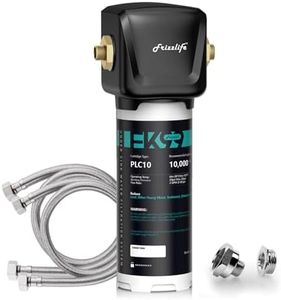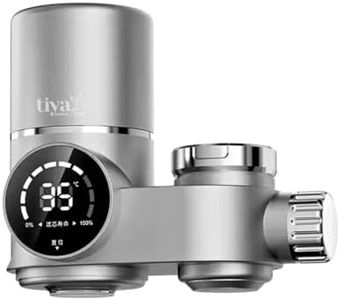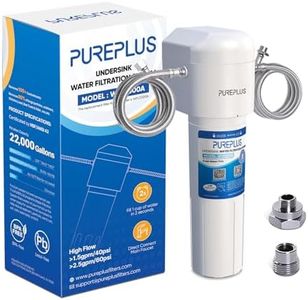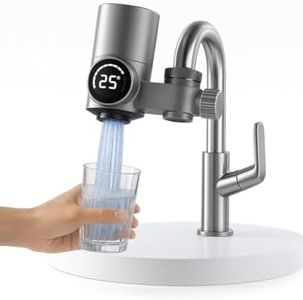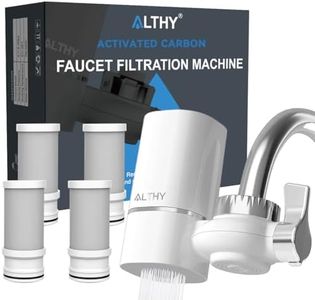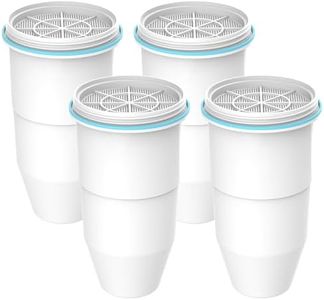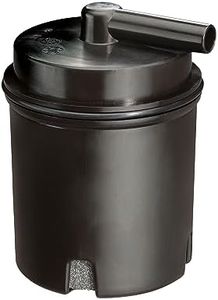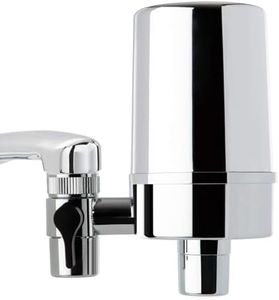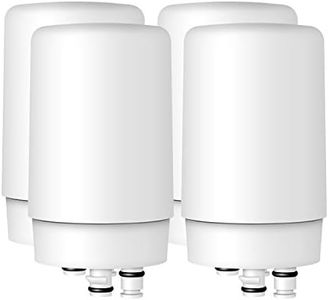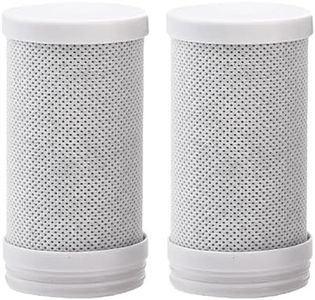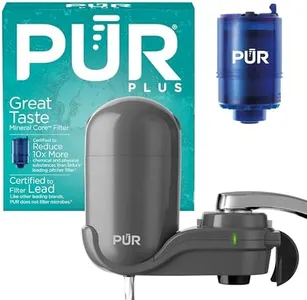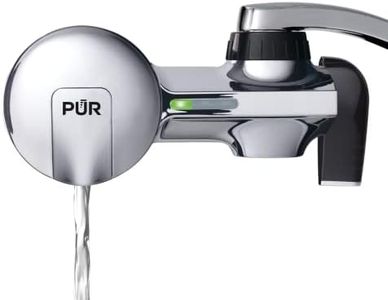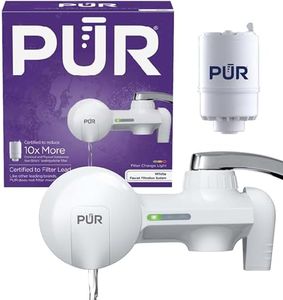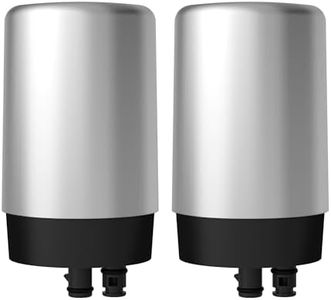We Use CookiesWe use cookies to enhance the security, performance,
functionality and for analytical and promotional activities. By continuing to browse this site you
are agreeing to our privacy policy
10 Best Faucet Filters
From leading brands and best sellers available on the web.By clicking on a link to a third party's website, log data is shared with that third party.
Buying Guide for the Best Faucet Filters
Choosing the right faucet filter can make a big difference in improving the taste, safety, and quality of your tap water. The market is filled with many options, each catering to different needs and water conditions. When shopping for a faucet filter, it's important to understand the features and specifications that determine how well a filter works, how easy it is to use, and how often it needs attention. By understanding these key specifications, you can make a confident, informed choice that's tailored to your household’s requirements.Filtration TechnologyFiltration technology refers to the method or system the filter uses to clean your tap water. This might include activated carbon, ceramic, or multi-stage filters. This is important because each method removes different types of contaminants; for example, activated carbon is great for improving taste and reducing chlorine, while multi-stage filters may tackle a wider range of impurities like lead and bacteria. There are basic, single-stage filters that remove chlorine and sediment, and more advanced, multi-stage filters that handle heavier metals and microorganisms. If your water has a strong taste or smell, or if you’re concerned about heavy metals, you might want a filter with more comprehensive technology. Consider your local water quality and what you want to remove from your water.
Contaminant ReductionThis specification tells you which impurities the faucet filter is actually able to remove from your water. The list might include chlorine, lead, bacteria, pesticides, and other harmful substances. This spec is important because your water’s safety and taste directly depend on which contaminants are eliminated. Some filters focus on basics like chlorine and sediment, while others can handle more advanced issues such as fluoride, heavy metals, and microbial cysts. Take a look at water quality reports in your area or any specific concerns you have, and choose a filter that targets those contaminants.
Filter Life/CapacityFilter life or capacity refers to how much water can pass through the filter before it needs to be replaced, usually measured in gallons or liters. This is important because it affects how often you'll need to maintain or replace the filter, impacting both cost and convenience. Filters with a lower capacity might only last a few months for a small family, while those with a higher capacity can last six months or more. If you have a large household or use a lot of filtered water, look for a filter with a higher capacity to reduce the frequency of replacements.
Flow RateFlow rate measures how much filtered water comes out per minute, typically listed in gallons per minute (GPM) or liters per minute. This spec matters because a low flow rate can make filling a pot or getting a glass of water slow and inconvenient, while a higher flow rate means you get water faster but may compromise filtration effectiveness. Basic filters usually offer higher flow rates but might filter less thoroughly. If you want a good balance, average flow rates are fine for most kitchens, but if speed is essential—for example, in a big, busy family—look for higher flow rates.
Installation and CompatibilityThis refers to how easily the faucet filter fits on your tap and how straightforward it is to install. Some filters clip on easily without any tools; others may require adapters or extra steps. This is an important consideration because not every filter fits every faucet. There are filters designed for standard faucets, but some won’t fit pull-out, hand-held, or designer faucets. Make sure to check your faucet type before choosing a filter, and consider your comfort level with DIY installation.
CertificationsCertifications are endorsements from third-party organizations that verify the filter’s performance claims, such as removing certain contaminants. The most common are NSF and ANSI certifications. This spec is important because it provides assurance that the filter has been tested and meets safety and performance standards. Filters might have no certification, general material safety certification, or specific contaminant reduction certifications. For greater peace of mind, look for filters with certifications for the contaminants you care about most.
